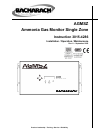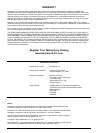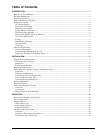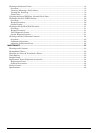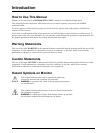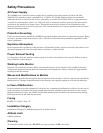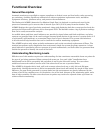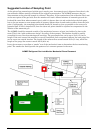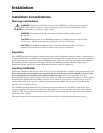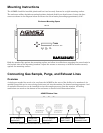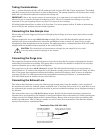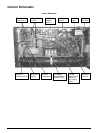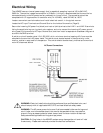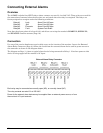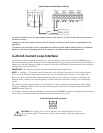
Instruction 3015-4286 5
Installation
Installation Considerations
Warnings and Cautions
WARNING: Explosion hazard! Do not mount the AGMSZ in an area that may contain
flammable liquids, vapors or aerosols. Operation of any electrical equipment in such
an environment constitutes a safety hazard.
WARNING: Shock hazard! Always disconnect AC power before working inside
the monitor.
CAUTION: Drilling holes in the AGMSZ enclosure may damage the unit and will void
the warranty. Please use knockouts provided for electrical connections.
CAUTION: The AGMSZ contains sensitive electronic components that can be easily
damaged. Be careful not to touch or disturb any of these components.
Inspection
The AGMSZ has been thoroughly inspected and tested prior to shipment from the factory. Nevertheless, it
is recommended that the monitor be re-checked prior to installation. Inspect the outside of the enclosure to
make sure there are no obvious signs of shipping damage. Open the enclosure and inspect the interior of
the monitor for loose components that may have become dislodged during shipment. If damage is
discovered, please contact the nearest Bacharach Service Center for assistance.
Locating the Monitor
Locate the AGMSZ so that no more than 50 ft (15.2 m) of tubing will be needed to reach the sampling area.
Since the monitor uses ambient air to purge its gas sensor, the monitor should be located in a
well ventilated area that does not contain refrigerant gas. If this is not possible, then it is
recommended that a separate purge line be run to an area known to contain fresh (zero) air. The length of
this purge line should not exceed 100 ft (30.4 m). If the monitor is located in a confined space, then it is
also recommended that a separate exhaust line be run to the outside. The length of this exhaust line
should not exceed 50 ft (15.2 m).
The AGMSZ should be operated in an environment that is between 32 and 122°F (0 and 50°C); has a
relative humidity of between 5 and 90% non-condensing; and is at an altitude of no more than 6,562 ft
(2,000 m). The area should also be relatively free of dirt, grease, and oils that could adversely affect the
operation of the monitor.
The location should allow the monitor to be easily accessible for visual monitoring and servicing.



